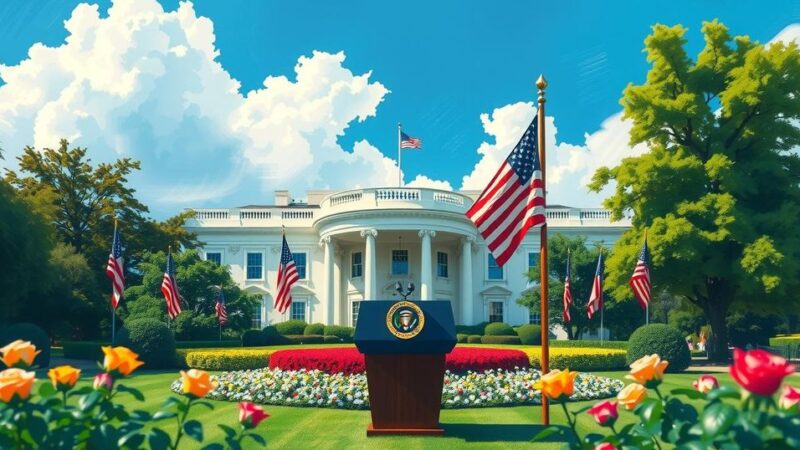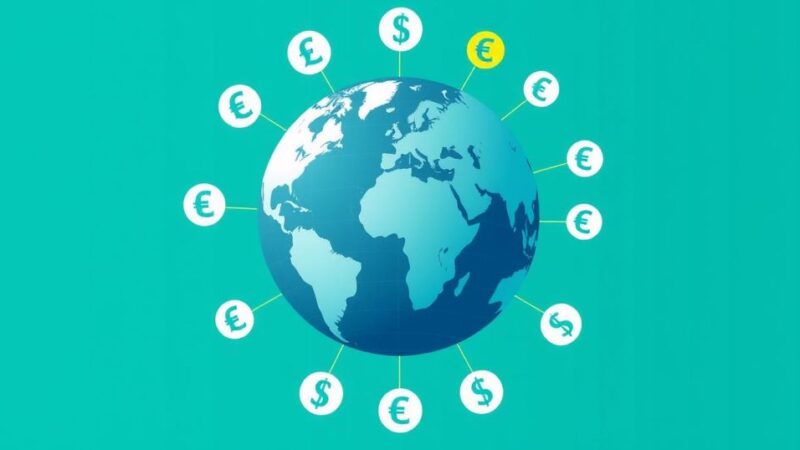Greenland is holding parliamentary elections amid increasing international focus due to President Trump’s interest in the island’s strategic resources. Local sentiments lean towards independence and the desire to safeguard national sovereignty. Concerns of external influence alongside commitment to environmental stewardship characterize the election and the broader political atmosphere.
Greenland, with a small population of 56,000, is holding early parliamentary elections that are under keen observation due to external pressures, notably from U.S. President Donald Trump. Trump seeks to assert control over this strategically significant island, which is rich in rare earth minerals essential for the world economy. Although Trump’s ambitions are not directly on the ballot, they heavily influence the election’s context and public sentiment.
The inhabitants of Greenland, predominantly of Indigenous Inuit descent, are focusing on securing their sovereignty amidst Trump’s attention. According to Pipaluk Lynge, a member of the ruling Inuit Ataqatigiit party, many citizens express concern over Trump’s interest, prompting a desire to strengthen ties with Europe to safeguard their future. Opinion polls indicate a significant preference for independence among Greenlanders, demonstrating their inclination to manage their destinies.
While Greenlanders maintain positive relations with Americans, particularly with U.S. military personnel stationed at the local Pituffik Space Base, there is no desire to embrace American citizenship. This sentiment transcends political affiliations, with individuals, including some pro-Trump supporters, asserting a collective belief in national self-determination. Gerth Josefsen, a local fisherman, underscores this view by stating, “Greenland is open for business, but not for sale.”
As the election approaches, the local political landscape has become unusually vibrant, attracting international media attention. The heightened visibility has transformed the democratic process, with local leaders like Prime Minister Mute Bourup Egede meeting overwhelming media presence at campaign events. Community members express a blend of apprehension and intrigue regarding external engagement, as reflected in Aviaja Sinkbaek’s remark about the press, “All these reporters are frightening to us.”
Greenland’s political climate is characterized by calm discourse, with relaxed campaigning traditions. Primary issues include workforce development and local airport enhancements, reflecting a focused yet measured political approach. As election day unfolds, the polling place at Nuuk sports hall will feature party tents and community offerings to engage voters, while logistical challenges create delays for confirming election results from remote areas.
With its vast land size housing untapped resources, Greenland aims to leverage rare earth minerals for economic diversification, particularly as governmental roles constitute 40% of employment. Nonetheless, environmental guidelines complicate mining efforts on the icy terrain. Recent extreme weather has spurred local precautions, with residents retreating indoors amid hurricane-strength winds, reaffirming their resilience in the face of both natural and geopolitical turbulence.
The upcoming parliamentary elections in Greenland are under heightened scrutiny due to President Trump’s interest in the island’s strategic and mineral wealth. While the Greenlandic populace largely favors independence, they seek to navigate their path with care. This situation reflects a blend of local autonomy concerns with global geopolitical dynamics, emphasizing the importance of self-determination and environmental caution in their future endeavors.
Original Source: www.2news.com






